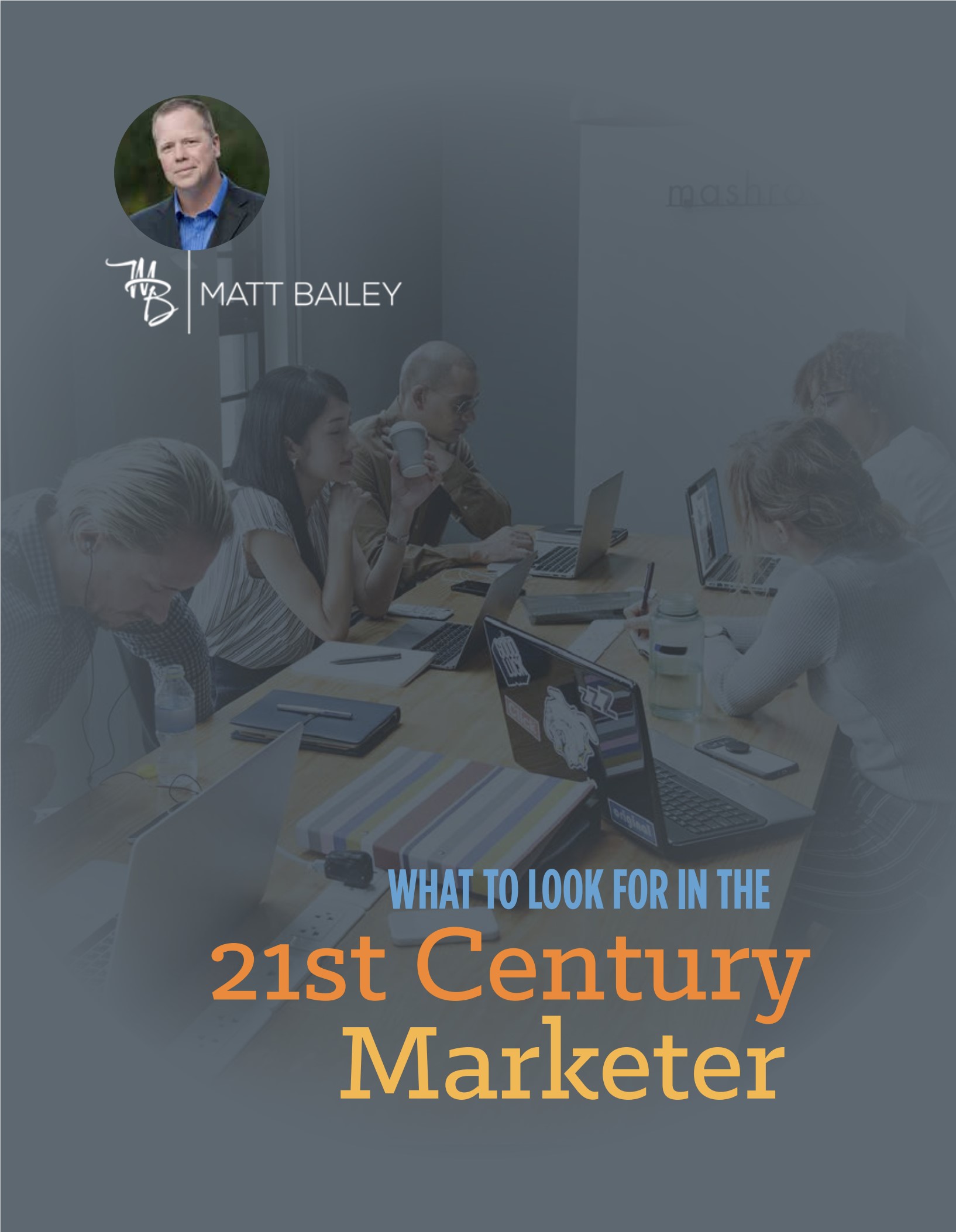Why Certification?
Professional Development, Ongoing Education, and Certifications in Digital Marketing
Certifications Validate Your Skills & Knowledge
Professional development is no longer optional, it’s essential.
As marketing channels fragment and new platforms emerge almost daily, the gap between academic theory and real-world execution has never been more obvious. Certifications, such as those from OMCP (Online Marketing Certified Professional) and the National Institute for Social Media (NISM), are emerging as critical tools to bridge this divide, providing structure, credibility, and a shared language across the profession.
Index of Content:
- Benefits of Digital Marketing Education
- Certificates v. Certifications: What’s the Difference?
- Places to Learn the Basics of Digital Marketing
- Platform-Specific Training and Certificates
- Professional Certifications
- Digital Marketing Educational Providers
- Choosing the Right Digital Marketing Course
- Evaluating Providers & Course Options
Benefits of Digital Marketing Courses
Certifications and professional development in digital marketing offer a powerful way to validate skills, stay current in a fast-changing industry, and gain a competitive edge. They not only boost your confidence and credibility but also open doors to career advancement and higher earning potential.
Job Roles & Expectations
In a crowded and often confusing job market, certifications help define clear standards for digital marketing roles.
They provide employers with a reliable benchmark to evaluate candidates and reduce mismatched expectations in hiring.
For professionals, this clarity helps ensure your skills align with the right opportunities.
Individual Career Growth
Certifications validate your expertise, build confidence, and demonstrate your commitment to staying ahead in a rapidly evolving field.
They enhance your ability to speak the language of strategy and data, making you more valuable to employers.
Whether you’re starting out or advancing, they signal that you’re ready for greater responsibility and leadership.
Team Development
For organizations, certifications create a shared vocabulary and consistent skill set across teams, reducing inefficiencies and miscommunication.
They enable managers to identify and nurture individual strengths while aligning everyone toward strategic goals.
Investing in professional development also improves employee retention by showing people they’re valued and supported.
Certificate vs. Certification: What’s the Difference?
While the terms certificate and certification are often used interchangeably, they mean very different things—especially in professional development.
A certificate is awarded when you complete a course or training program. It shows that you participated in or completed a learning experience, but it doesn’t always prove mastery. Even if you take a test or a quiz, if the test is administered by the course provider, it is only a certificate, as there are is no third-party endorsement.
A certification, on the other hand, is a formal credential awarded after passing a standardized exam administered by a recognized authority.
A third party is what gives a certification its credibility and objectivity. It is independently developed and assessed based on industry-wide standards. This ensures the evaluation is impartial, not influenced by a specific curriculum or business interest, and reflects what professionals actually need to know to succeed in the field. It also allows employers and peers to trust that the certification represents a true, unbiased measure of a person’s knowledge and capabilities.
Certifications typically require you to demonstrate competence in a subject, are time-bound (requiring renewal), and are designed to validate your skills in the eyes of employers and industry bodies.
A certificate shows you learned something.
A certification proves you know it—and can apply it.
When choosing a learning path, make sure you’re pursuing a certification if your goal is to stand out to employers and demonstrate verified expertise in digital marketing.
Places to Learn the Basics of Digital Marketing
Digital marketing certifications serve as formal recognition of a professional’s proficiency in various digital domains, including SEO, content marketing, social media, and analytics. They offer several advantages:
Platform-Specific Training Courses
Many advertising platforms offer their own courses on how to use the platform, set up accounts, develop ad campaigns, manage budgets, and report results.
Google: Google Ads, Google Marketing Platform, Google Analytics
Meta
Meta: Marketing on Facebook, Messenger, Instagram & WhatsApp
HootSuite
HootSuite Platform Certification
Google’s certificate is broader, covering general digital marketing and e-commerce skills. Meta’s focuses specifically on social media marketing within Meta platforms and beyond. Both are entry-level, self-paced programs designed to help learners build in-demand skills and start a digital marketing career.
Digital Marketing Professional Certifications
These courses and certifications cover broad digital marketing skills and strategy, and are widely recognized across industries:
OMCP (Online Marketing Certified Professional)
- OMCA (Online Marketing Certified Associate) for entry-level
- OMCP for experienced professionals
- Trusted by agencies and employers for broad-based digital marketing knowledge
American Marketing Association (AMA)
- Digital Marketing Certification in partnership with DMI
- Combines AMA credibility with DMI content
Digital Marketing: Education Providers
- OMCP Certified Instructor
- All Courses align to OMCP standards
- OMCA & OMCP Certifications
- Format: On-demand video / hands-on assignment / Instructor feedback & mentorship
- Over 300 digital marketing course topics
- Membership option available
- OMCA & OMCP Certifications
- Format: self-paced
Digital Marketing Institute (DMI)
- Offers certifications like Certified Digital Marketing Professional (CDMP)
- Globally recognized, with a standardized curriculum
- Format: Self-paced
- Courses across many topics (focus on programming).
- Format: self-paced video / assignments
- Courses across many topics
- SEO, Meta, and Post Grad courses
- Format: self-paced
- Gain Google, Meta, and Hubspot Certifications
- OMCA – aligned for certification
- Format: Self-paced
Duke University: Digital Marketing Specialist
- Aligned to many certificate programs
- Format: Self-paced
Choosing the Right Digital Marketing Course
When selecting a digital marketing certification options, consider the following factors:
Evaluating Education Providers
Here at SiteLogic, we create courses for many providers and institutions. Here’s our experience in working with educational partners:
The Basics: First is the platform-specific courses (Google Ads, Meta), especially if you want to get into the paid ad side of the business, as you’ll work in those environments.
The Big Players: The next level of training is typically the Udacity/Simplilearn/Coursera: You’ll get training courses developed by an SME, but the “advisors” that you actually talk to or that review your assignments typically only have 2-3 years experience. Most of their content is extremely out of date.
The Hype Masters: These courses seem to be everywhere, promising big results and mastery level content. However, they rarely deliver and students complain about the low quality and lack of information. They are better at marketing themselves than teaching courses.
Industry Experts: Practitioners with more than a decade in digital marketing who are able to communicate concepts simply and clearly while providing insights beyond the course outline. Many will provide mentorship and one-on-one feedback.
Evaluating Course Offerings
Assignments & Applications
When it comes to learning digital marketing, hands-on assignments and real-world activities make a significant difference.
Courses that go beyond passive video watching and offer interactive exercises—like building ad campaigns, writing email sequences, or analyzing performance data—help students apply what they’ve learned in practical, job-ready ways. These experiences simulate the challenges marketers face on the job, making learners more confident and capable when stepping into real roles.
Instructor Guidance & Feedback
Another key benefit is expert instructor feedback. Getting personalized insights from an experienced professional helps learners understand not just what to do, but why it works.
Unlike feedback from a teaching assistant or peer, expert input connects tactics to strategy, corrects missteps, and encourages creative problem-solving based on current industry standards. This level of mentorship can accelerate learning and make the difference between surface-level understanding and true marketing competence.
Confidence In Your Skills
In contrast, video-only courses with no feedback may be convenient, but they often leave learners with unanswered questions and little confidence in their work.
Without opportunities to test knowledge in context or receive corrections, students may complete the course without being job-ready. For anyone serious about a career in digital marketing, choosing a course with hands-on projects and access to expert feedback is an investment in real-world skill building and long-term success.


Discover the essential skills, mindsets, and capabilities that define today’s top marketers. This free research report reveals what separates high-performing professionals from the rest—and how to build teams ready to succeed in a fast-changing digital world.

